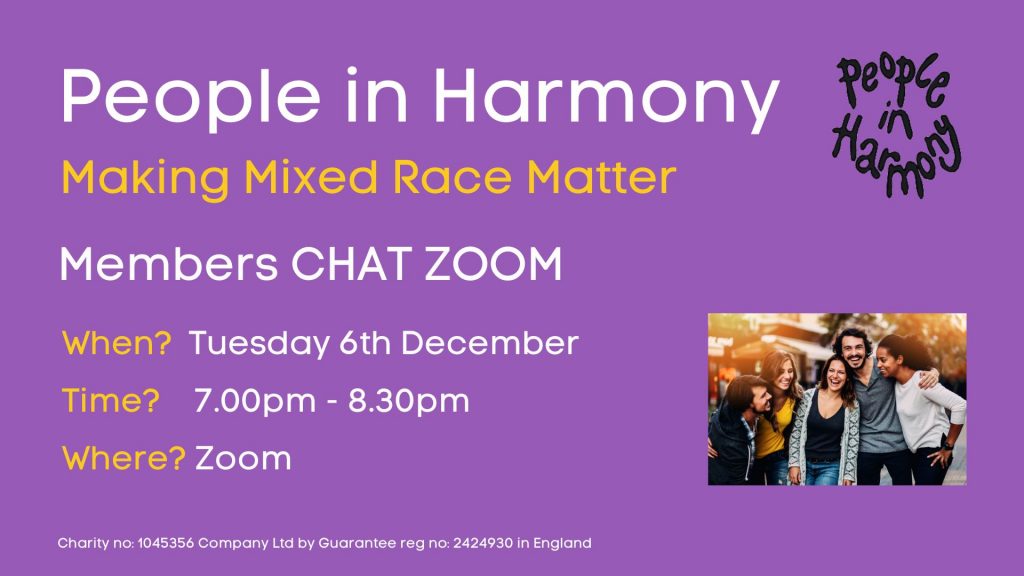PIH Members CHAT Zoom 6th December 2022.
What does Mixed Race mean for you, for families, relationships and friendships?
Join us for this month’s CHAT Zoom on Tuesday 6th December 2022 7:00 – 8:30pm.
We’re into December already and you’ve just time to join us for the last CHAT Zoom of 2022. If you’re wondering where the past 2 years have gone download our Annual Report 2021 for one of them and have a read. This year has been the 50th Anniversary since the organisation was founded by Carol Kayira and there’s is a large amount of mixed social history contained within the Harmony newsletters that were first published in 1972 and the PIH Mixed Race Matters magazine that is currently published free for members.
Could you become a member and be part of our regular Making Mixed Race Matter CHATS and discussions? An annual subscription is just £12.00 and you can join in the monthly chats, receive free copies of our bi-annual magazine PIH Mixed Race Matters, the regular news bulletins and information, notifications of events plus the other benefits that come with being a member of the UK’s Mixed Race charity – People in Harmony. Making Mixed Race Matter!
Contact Us for membership queries, invites to CHAT Zooms and for details of the next meeting in January 2023!
Breaking Stereotypes With Data: A Report on Mixed Race Children and Families in the UK. Published by People in Harmony
‘Breaking Stereotypes with Data’ is the first of its kind to deliver robust academic research with nuanced guidance and care from a mixed race community organisation. This report shows a contemporary view of the lived experiences of mixed race people and families, and calls upon government, health services, local government, public services and other organisations to improve their services and practices for mixed race children and families.
The results confront and disprove any lingering negative stereotypes of mixed race children and families. Previous social research and the new interviews show us that negative perceptions still exist and have a measure of impact on mixed race families. Yet analysis of these data show that there is no basis to these stereotypes, specifically that mixed race children are ‘mixed up’, or that parents of mixed race children place them at a disadvantage.
Therefore, the report is ‘breaking stereotypes with data’, concluding that the lives of mixed race children and families are far more complex than stereotypes would have us believe.
